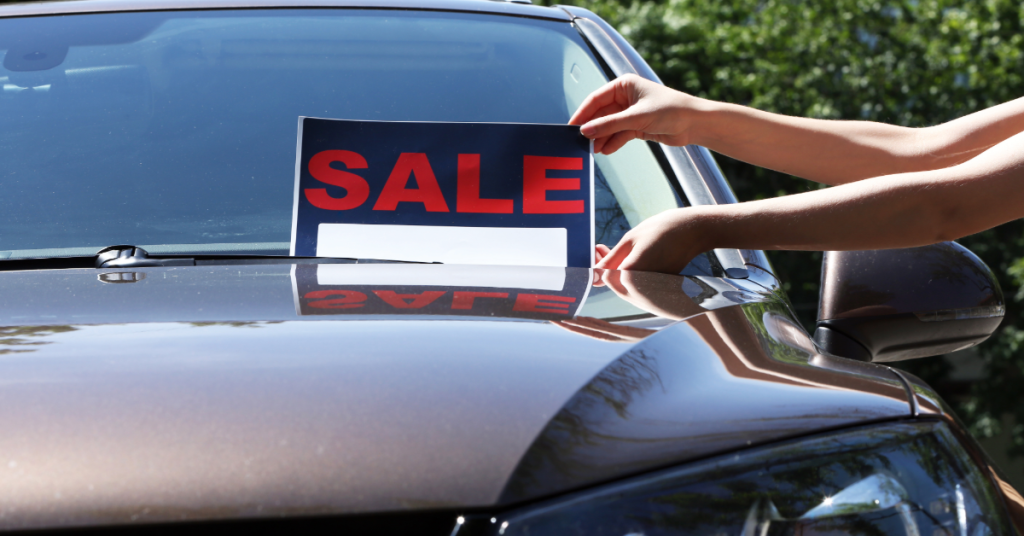Unlock Your Selling Potential: Master the Art of Avoiding Common Car Selling Blunders
When I decided to sell my car, I quickly discovered numerous pitfalls that could derail the process. Through trial and error, I learned valuable lessons that would have made my experience much smoother. In this article, I’ll share the top ten mistakes I made and how you can avoid them. From researching the market to preparing your car and handling negotiations, these insights will help you navigate the selling process efficiently and get the best possible price for your vehicle.
Not Doing Enough Research
Diving headfirst into the car selling process without a roadmap is like navigating a busy city without GPS—you might eventually get to your destination, but you’ll likely make a few wrong turns along the way. A lack of research is one of those wrong turns that can lead to a less lucrative outcome. Did you know that failing to understand your car’s market value can result in bad pricing strategy, leaving you with fewer inquiries and, ultimately, less money?
The first pit stop on this journey should be an exploration of your car’s worth. Utilize tools like Kelley Blue Book, Edmunds, or NADA Guides to gauge the value of your ride. Compare your findings to similar models in your local market to ensure you’re not just making a list with poor quality estimates. Remember, setting the right price is an art form that’s totally worth your time—one that can prevent you from needlessly leaving cash on the table or facing an unhappy buyer.
Pricing Pitfalls: Setting the Wrong Asking Price
Imagine setting the stage for a grand play only to realize the lead character is woefully miscast. In the theater of car selling, the lead character is none other than your asking price. You’ve done the legwork to understand your car’s market value, but setting a price that’s either too high or too low can be one of those obvious mistakes that sabotage your show.
To avoid the common pitfalls of pricing, consider your car’s details—its age, make, model, and added features—when determining the best asking price. You want to sing just a few notes higher than the market value, allowing for the dance of negotiation to play out. Think of it as setting a slightly higher price that’s justified by your car’s condition and history, like a written estimate of its life story that buyers can trust. This strategy also allows you to avoid a bad pricing strategy that leaves money on the table or sets expectations too high.
The Presentation Flaw: Overlooking Car Cleanliness
A diamond in the rough may hold untold value, but it’s the sparkle that catches the eye. The same goes for your vehicle. Overlooking the cleanliness of your car is akin to presenting a diamond caked in mud. It’s one of those common mistakes that can turn a well maintained car into a dirty car that fails to impress potential buyers.
Investing in professional detailing can transform your car from a parking lot dweller to a showroom star. From the lustrous shine of the exterior to the fresh scent of the interior, every aspect of your car’s condition speaks volumes to prospective buyers. Address minor cosmetic issues and showcase your car in all the right angles, both in person and in your car online listings.
A super clean car, complemented by a compelling description and camera savvy photos, can make all the difference between a quick sale and a lingering listing. However, not enough photos might hinder the potential buyer’s interest.
The Honesty Policy: Not Being Totally Honest About Your Car’s Condition
When it comes to selling your car, honesty is more than a moral high ground—it’s a policy that can make or break the deal. Imagine the disappointment of an excited buyer discovering undisclosed issues after the purchase. Not only could this lead to an unhappy buyer, but it could also result in legal trouble.
Be totally honest about your vehicle’s condition. If your car has quirks or needs repairs, disclose them upfront. This transparency not only builds trust with prospective buyers but also sets a clear expectation regarding your car’s worth. By providing a well-maintained car, you not only justify your car price but also fortify your reputation as a seller. After all, a car’s history is part of its charm, and sharing it honestly can help ensure a smooth transaction with no post-sale drama.
Maintenance Missteps: Incomplete Repair History
Have you ever wondered why some used cars command higher prices than others with similar specs? The devil, as they say, is in the details—or in this case, the maintenance and repair history. A car with a well-documented service record can be as enticing as a car fresh off the assembly line. Maintenance records serve as a testament to the care invested in the vehicle, reassuring buyers about the car’s condition and reliability.
When selling your car privately, ensure that you provide a thorough repair history. This level of detail can significantly increase buyer confidence and, consequently, your car’s selling price. It’s a simple equation: more transparency equals more trust, which often equals more money. And if you’re able to supplement these records with the results of a pre-purchase inspection? You’re not just selling a car; you’re providing peace of mind—a commodity that’s always in high demand.
Title Troubles: Not Having Your Car’s Title Ready
Picture this: You’ve found an interested buyer, agreed on a price, and are ready to hand over the keys, only to realize that the car’s title is nowhere to be found. This oversight can cause significant delays and even dissolve the deal. The car’s title is the golden ticket that officially transfers ownership from seller to buyer—it’s the cornerstone of the car selling process.
Before listing your car online or in local market ads, make sure you have the title in hand. If you’re still paying off your car, coordinate with the lender to understand the process of title transfer once the loan is paid. Some states even offer electronic titles, which streamline the process and reduce the risk of physical documents getting lost or damaged.
Remember, having the title ready not only prevents legal trouble but also reassures the buyer about the vehicle’s condition and your legitimacy as a seller.
Negotiation Neglect: Lacking a Pricing Strategy
Ever watched a master negotiator at work? They approach the table with confidence, armed with a strategy that leaves little room for error. When selling a car, entering negotiations without a pricing strategy is a gamble that often results in walking away with less money than you deserve.
Set your asking price with enough room to engage in the dance of negotiation. Consider the value of optional features and warranties when pricing your car, but be realistic—recouping the full cost of these investments is as rare as a unicorn sighting. If you receive an offer that’s within your desired range, play it cool. Express interest, but keep the lines open for other potential buyers.
A good pricing strategy is like a well-played chess game—it’s all about making the right moves at the right time.
Inspection Ignorance: Not Allowing Pre-Purchase Inspections
What if you could offer a guarantee so powerful that it could elevate your car above the competition? Allowing pre-purchase inspections is that golden ticket. It’s a move that reassures prospective buyers about the vehicle’s condition and demonstrates your confidence in the car’s worth.
A thorough inspection can uncover potential issues, giving you the opportunity to adjust the asking price accordingly or preemptively address any concerns. This transparency not only empowers buyers but also bolsters your position as a seller. By allowing inspections, you’re essentially offering a seal of approval, which can be a deciding factor for many buyers.
Documentation Dilemmas: Mishandling Paperwork Involved in Selling Privately
Selling a car is not just a transaction—it’s a legal transfer of ownership that requires diligence in paperwork. The maze of documentation involved in selling privately can be daunting, with many sellers falling short of the mark.
Before you shake hands and bid farewell to your vehicle, ensure all the paperwork is complete. This includes:
- The V5C logbook
- MOT certificate
- Maintenance records
- The bill of sale
Neglecting any of these critical documents can leave you vulnerable to liability for any future infractions involving your used car. Familiarize yourself with state-specific requirements to ensure that you’re not just selling a car, but that you’re also legally clear of it once it drives away.
The Final Handoff: Completing the Sale Properly
The finish line is in sight, but don’t let your guard down just yet. Completing the sale is a delicate process that, if not done properly, can lead to headaches down the road. Before finalizing the deal, it’s essential to address a few more inquiries to ensure a smooth transaction.
Only accept payment methods you trust, like cash in hand or a cashier’s check validated at the bank. Once the sale is finalized, cancel your car insurance and remove personal items from the vehicle. These last steps are not just about transferring ownership; they’re about ensuring that you part ways with your car completely, with no lingering obligations or concerns.
Summary
As we cruise to the conclusion of our car selling odyssey, you’re now equipped with the knowledge to avoid the common pitfalls that can plague sellers. From the initial pricing strategy to the final handoff, each step is crucial in securing a sale that leaves both the buyer and seller satisfied.
Embrace this guide as your co-pilot through the twists and turns of the car selling journey. With these insights in your toolbox, you’re ready to sell your car with the confidence of a seasoned pro. May your sale be swift, your profits plentiful, and your experience free of regret!
Frequently Asked Questions
How do I determine the right asking price for my car?
To determine the right asking price for your car, use online tools like Kelley Blue Book, Edmunds, or NADA Guides to understand your car’s market value and compare it to similar models in your local market, taking into account your car’s specifics. This will help you set a competitive asking price.
Is it really worth getting my car professionally detailed before selling?
Yes, it’s worth getting your car professionally detailed before selling. Professional detailing can enhance your car’s appearance, increase its perceived value, and often lead to a higher sale price and quicker sale.
Do I need to cancel my car insurance immediately after the sale?
Yes, you should cancel your car insurance as soon as the sale is complete and the vehicle is no longer in your possession to avoid unnecessary expenses.
Should I allow pre-purchase inspections even if I know my car is in good condition?
Allowing pre-purchase inspections can provide peace of mind to potential buyers and may even help you justify a higher asking price by reinforcing the car’s condition. It’s a smart decision as it can benefit both you and the buyer.













